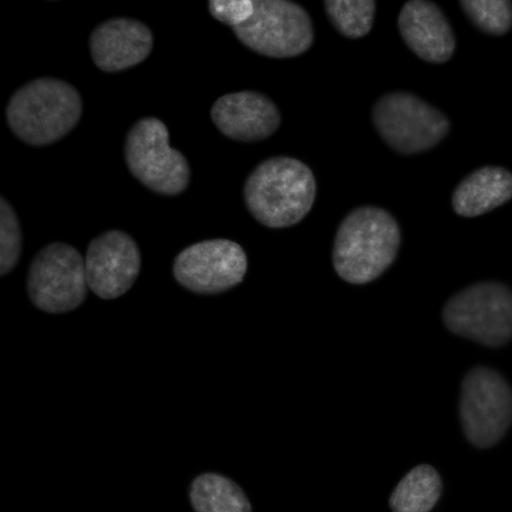

- Cellprofiler custom script install#
- Cellprofiler custom script update#
- Cellprofiler custom script upgrade#
- Cellprofiler custom script full#
- Cellprofiler custom script software#
Cellprofiler custom script update#
You can set these back to a different version by simply installing a later version of python (which will update the python3 symlink), or by manually editing the link file in /usr/local/bin/ with:Ĭd /usr/bin & rm. You should also be made aware that this script will set your default python3 and python variable to python3.6 for ease of install.

Cellprofiler custom script install#
You shouldn't need to do much with this, just know that it's happening (moving the javabridge install baseline into the correct spot). Mv ~/.local/lib/python3.6/site-packages/* /usr/local/lib/python3.6/dist-packages/ There's a line that fixes this in the current build: Submit some issue logs here if you run into trouble - usually the big issue is that Javabridge will claim to not be installed (but it is). $ sudo cellprofiler will enable unet module to run properly in your pipeline - issue#4 NOTICE - some modules will not function correctly unless you call cellprofiler with SUDO or as root The script will launch cellprofiler and you can call the app with "cellprofiler" in a terminal window from its install path.Ĭomments on code are explanatory enough (I hope) to explain why things are occurring and what lives where for better troubleshooting in the future.
Cellprofiler custom script full#
(mostly because wxPython build from binary takes FOREVER), and it was preferable to see the output rather than believe that the script was hanging for a full hour on "building wxPython from wheel." The script takes up to 10 mins on less nice systems (a few mins on great systems) and up to an hour on a VM with 2gb ram. (3.7 seems to throw many more errors than 3.6). You'll have to make the edit then press return to continue running the installer. There is a point after you start the script that will require you to edit ~/Cellprofiler/setup.py to lower the required python version from 3.7 to 3.6.
Cellprofiler custom script upgrade#
(It's fine I just have to say it).įor code base support after installation, check the cellprofiler page: īefore you begin: $ sudo apt update & sudo apt upgrade -y My script will make changes to your operating system, so I advise making a backup before running, and I offer no warranty, As-is standard agreement, not my fault, etc. I simply bridge the gap between cellprofiler and linux (ubuntu).
Cellprofiler custom script software#
Note: I do not own, nor do I support, the plugins or software that this script installs. This script serves to rectify that oversight. NOTE: AT THIS TIME UBUNTU 19.X/20.X IS NOT SUPPORTED (working on it)Īt time of publication- cellprofiler is not supported on version 3.x for linux, and the modules "classify" and "classifypixelsunet" are not supported on linux. This script is simply an installer to make it easier for users to get CellProfiler on their linux workstations with a supported version of python. For support and queries, route to the Cellprofiler page on Github. Proven to work on Ubuntu 18.04 and installs all dependencies. Install script for CellProfiler v3.1.9 on Ubuntu 18.04.3 LTS(+) - bash, installs python3.6 This repo filled a need that has passed for the original use case, and the creators have unified their platform in a way that is much more accessible. These modules are crucial for any CellProfiler pipeline because they define how images are loaded and organized in CellProfiler for downstream analysis. Our work identifies druggable regulators of axonal transport of mitochondria, provides broadly applicable methods for similar image-based screens, and suggests that restoration of proper axonal trafficking of mitochondria can be achieved in human ALS neurons.CellProfiler_Ubuntu_Installer THIS REPO IS NO LONGER SUPPORTED OR MAINTAINED - PLEASE UTILIZE THE CONDA INSTALLATION INSTRUCTIONS FOR LINUX FOUND HERE: A tutorial to introduce you to four modules in CellProfiler Images, Metadata, NamesAndTypes, and Groups (collectively known as the Input modules). Pharmacological inhibition or small hairpin RNA (shRNA) knockdown of each target promotes mitochondrial axonal transport in rat hippocampal neurons and induced pluripotent stem cell (iPSC)-derived human cortical neurons and enhances mitochondrial transport in iPSC-derived motor neurons from an amyotrophic lateral sclerosis (ALS) patient bearing one copy of SOD1 A4V mutation. Six compounds enhanced mitochondrial transport in the sub-micromolar range, acting via three cellular targets: F-actin, Tripeptidyl peptidase 1 (TPP1), or Aurora Kinase B (AurKB). We report a high-content screen for small-molecule regulators of the axonal transport of mitochondria. Dysregulated axonal trafficking of mitochondria is linked to neurodegenerative disorders.


 0 kommentar(er)
0 kommentar(er)
